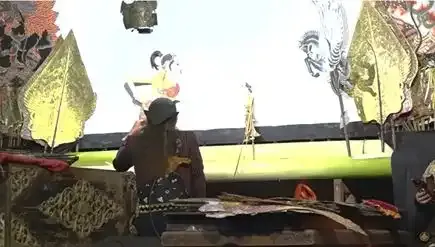Javanese culture is the cultural heritage of the Javanese people, an ethnic group native to the island of Java in Indonesia. The Javanese people are known for their distinct language, arts, music, dance, and traditions that have evolved over centuries.
Javanese culture has been influenced by various religions and cultures over time, including Hindu-Buddhist, Islamic, and Dutch colonialism. As a result, it has a unique blend of ancient and modern elements, traditional and contemporary styles.
Some of the most prominent aspects of Javanese culture include:
Language
Javanese is one of the major languages spoken in Indonesia and is the native language of the Javanese people. It has its own script called Hanacaraka, which is used for writing and reading Javanese.
The language is known for its politeness and formality, with various levels of speech used depending on social status and context.
Arts and crafts
Javanese art is diverse, with different styles influenced by different cultures and historical periods. Batik, a traditional method of dyeing cloth using wax, is one of the most iconic Javanese arts.
Wayang, a form of shadow puppetry, is also popular in Java and is used to tell stories from ancient myths and legends. Gamelan, a traditional Javanese orchestra composed of percussion and metal instruments, is also a prominent aspect of Javanese culture.
Religion
The majority of Javanese people are Muslims, but traditional Javanese religion, Kejawen, is still practiced by some. Kejawen is a syncretic religion that combines elements of animism, Hinduism, and Buddhism. It emphasizes the importance of balance and harmony in nature and human relationships.
Cuisine
Javanese cuisine is known for its rich flavors, with a balance of sweet, salty, sour, and spicy tastes. Some popular Javanese dishes include nasi goreng (fried rice), gado-gado (vegetable salad with peanut sauce), and sate (skewered meat). Rice is a staple food in Javanese cuisine, and it is often served with various side dishes and condiments.
Dance and music
Traditional Javanese dance and music are intricate and graceful, with a focus on precision and balance. The gamelan orchestra accompanies many Javanese dances, providing a rhythmic and melodic backdrop. Some popular Javanese dances include bedhaya and srimpi, which are performed by female dancers in elaborate costumes.
Overall, Javanese culture is a diverse and dynamic mix of traditions, values, and customs that have evolved over centuries. Its unique blend of ancient and modern elements reflects the complex history and identity of the Javanese people.

